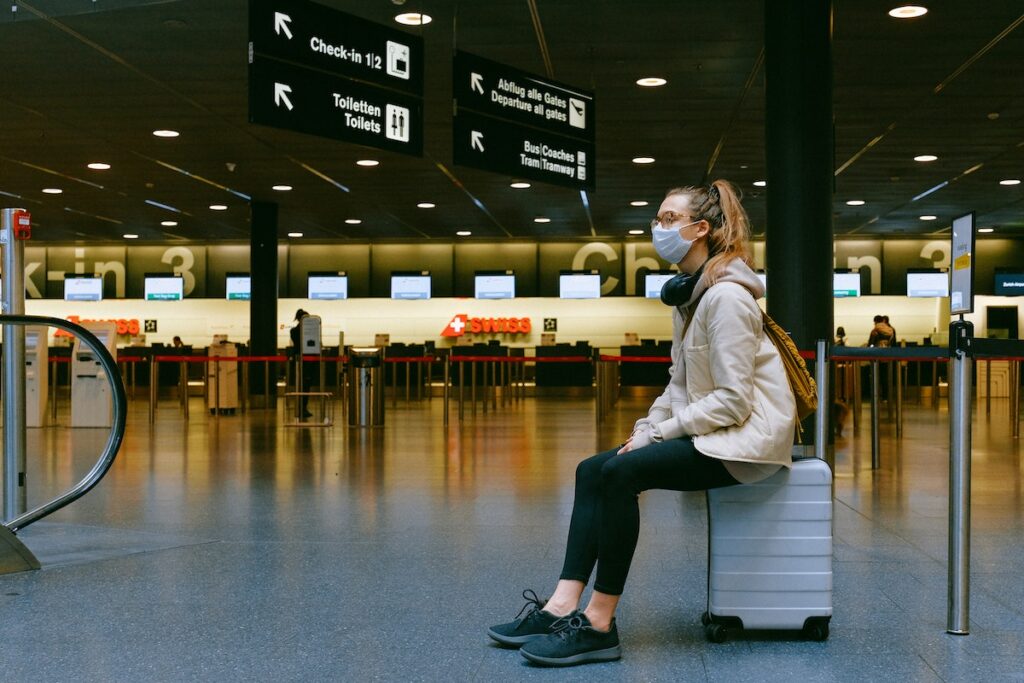COVID-19 forced global businesses to halt their in-person business meetings. They were all shifted to video calls.
But cybercriminals kept on working hard to break into sensitive business data. Therefore, the dynamics of cybersecurity have now changed a fraction.
Today, we need to go through fresh cybersecurity tips for travelers so that they can avert the trap laid out by cybercriminals.
Now that flights are resuming and businesses have started conducting in-person meetings, business travelers must be on their toes to understand and follow these nine cyber security tips while they travel.
Let us look at them:
-
Table of Contents
Lock all devices up
These days, devices come with specialized security systems. Every device, be it a smartphone, laptop, or tablet, has security locks secured by a PIN.
Ensure that you lock down all devices before boarding the flight. Also, change the previous lock patterns to new ones to be safer. If you lose custody of your device, the pattern locks will be your first line of defense.
Also, do not forget to use fingerprint ID as it is one thing that can neither be guessed nor matched.
-
Do not visit non-SSL websites.
People often visit websites while planning their business trips. For example, it is common to look out for places to visit nearby, such as shopping centers, food courts, and hotels, for a little bit of free time, of course.
So, while you check out a website, it is essential to ensure that it is safe, right? SSL Certificate provides that safety to websites. So, before entering your debit/credit card and bank details, it is essential to know whether the website is SSL encrypted or not.
An SSL or Secure Socket Layer certificate is a security protocol essential for encrypting data and establishing a secure network for data transfer.
In other words, SSL is a technology that does not allow a hacker to see what is getting transferred on the network. The data gets encrypted at the source and decrypted at the receiver’s end.
This certificate provides a safe passage for business data such as admin passwords, usernames, bank details, addresses, emails, etc. If intercepted, hackers can use them to hack integral business systems and damage them.
Therefore, if you are a business traveler, you must see which websites you visit from your device. If you visit non-SSL websites, hackers can creep into your system and steal essential business data. As a traveler, you should check https, grey padlock before browsing further on any website.
So, only visit SSL-encrypted websites.
-
Be careful with public Wi-Fis.
Public Wi-Fis can be extremely dangerous, especially when you are using them to access your personal or business accounts.
It would help if you only used public Wi-Fi after knowing its security protocol. Before connecting to your hotel’s Wi-Fi, ask the staff about the security practices they follow to protect their guest’s data.
Moreover, beware of free café Wi-Fis. They are the most vulnerable as you never know how many illegitimate users can access them.
-
Disable auto-connects
Though auto-connect is one of the sweetest things when you are at home, it can be fatal to your data when you are outside.
People often find it convenient to use such options, but you never know whether your phone or laptop has been connected to a legit Wi-Fi or not.
Legit or not, it is best to avoid public Wi-Fis altogether. Therefore, before boarding the flight, ensure that you disable auto-connects from all devices.
If your device gets connected to an illegitimate public Wi-Fi, hackers can sneak in and steal your sensitive data.
-
Do not share your whereabouts.
This is one of the most important cybersecurity tips for traveler. Wondering why? Well, in this social media-centric world, people love to update where they checked in, where they are eating, or chilling.
The problem with excessive sharing is that if a hacker is trying to manipulate your data, they know exactly where you are; they can guess the public network you will be using.
This opens a window for manipulation as they can quickly get someone at your location to spy on your data.
Therefore, it would be best not to share which trip you are at. Avoid mentioning the details of the hotel, the company, and the café you are sitting in since, most of the time, your smartphone may contain sensitive business data such as login details.
-
Install antivirus on all devices
Before heading to the airport, ensure that a robust antivirus secures your smartphone, tablet, and laptop.
Most of the time, our phones contain information like company details, login credentials to the company website, client details, and of course, our bank details as well.
Without optimum security, all of that will be at risk of cyberattack. But an antivirus system will quarantine the treats and does not allow them to harm your device further.
-
Update your devices

Since you will be using those devices for business purposes, it would be best if they were updated to their latest software versions.
Be it mobile application, plugins, CMS update of the website, OS update, Mac update, or windows update. Keep everything updated and leave no chance for a hacker to intercept your data.
Wondering why it is essential?
Well, outdated software is easy to hack. When cyber experts find any vulnerability in the existing software version, they issue an update to help keep users safe from a cyberattack.
So, please do not allow a hacker to exploit your software vulnerability; update it now.
-
Attend to your passwords
Passwords help you defend your data. Especially when you are traveling for a business trip, you need to check on their strengths. Therefore, they deserve a periodic look-after.
If you do not have additional layers of security like 2FA in place, integrate them immediately. Whenever a hacker tries to break your password, you will get an OTP alerting you about the attempt.
Also, limit the password attempts. If a hacker tries to enter the password, they should not be allowed to enter more than three times. Three wrong attempts should mean blocking of IP address until you unblock it.
-
Turn off your Bluetooth
Since your company has trusted you with guarding their sensitive data, the onus of its protection lies on you. Much like Wi-Fi, Bluetooth also allows hackers to creep into your device. That is why we recommend you keep it turned off during the flight.
You never know about the man/woman sitting beside you; cybercriminals do not look different from us. They can creep into your phone, spy on your data, steal it and sell it on the dark web.
Final Thoughts
After going through all nine points, you must have got an idea of how cybercrimes can happen without knowing them.
The chance of an attack increases when people know that you will be boarding the flight for a business trip. Therefore, it is best not to talk about your journey in public since you will be carrying sensitive information.
Also, we recommend you read a bit about the cybersecurity laws of the country you are about to visit. It can give you an insight into what types of attacks you may encounter and how you can protect your data in that country.
So, follow these nine cyber security tips mentioned above and have a safe and joyful business trip.





